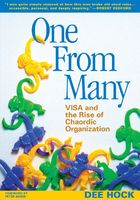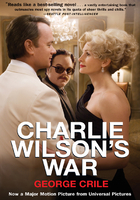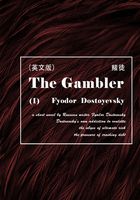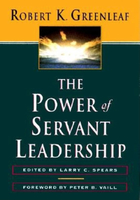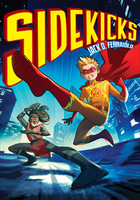Urania. Her parents had done her no favor; her name suggested a planet, a mineral, anything but the slender, fine-featured woman with burnished skin and large, dark, rather sad eyes who looked back at her from the mirror. Urania! What an idea for a name. Fortunately nobody called her that anymore; now it was Uri, Miss Cabral, Ms. Cabral, Dr. Cabral. As far as she could remember, after she left Santo Domingo (or Ciudad Trujillo—when she left they had not yet restored the old name to the capital city), no one in Adrian, or Boston, or Washington, D.C., or New York had called her Urania as they did at home and at the Santo Domingo Academy, where the sisters and her classmates pronounced with absolute correctness the ridiculous name inflicted on her at birth. Was it his idea or hers? Too late to find out, my girl; your mother was in heaven and your father condemned to a living death. You'll never know. Urania! As absurd as insulting old Santo Domingo de Guzmán by calling it Ciudad Trujillo. Could that have been her father's idea too?
She waits for the sea to become visible through the window of her room on the ninth floor of the Hotel Jaragua, and at last she sees it. The darkness fades in a few seconds and the brilliant blue of the horizon quickly intensifies, beginning the spectacle she has been anticipating since she woke at four in spite of the pill she had taken, breaking her rule against sedatives. The dark blue surface of the ocean, marked by streaks of foam, extends to a leaden sky at the remote line of the horizon, while here, at the shore, it breaks in resounding, whitecapped waves against the Sea Walk, the Malecón, where she can make out sections of the broad road through the palms and almond trees that line it. Back then, the Hotel Jaragua faced the Malecón directly. Now it's to the side. Her memory brings back the image—was that the day?—of the little girl holding her father's hand as they entered the hotel restaurant so the two of them could have lunch together. They were given a table next to the window, and through the sheer lace curtains Uranita could see the spacious garden and the pool with its diving boards and swimmers. In the Patio Espa?ol, surrounded by glazed tiles and flowerpots filled with carnations, an orchestra was playing merengues. Was that the day? "No," she says aloud. The Jaragua of those days had been torn down and replaced by this massive shocking-pink structure that had surprised her so much when she arrived in Santo Domingo three days ago.
Were you right to come back? You'll be sorry, Urania. Wasting a week's vacation, when you never had time to visit all the cities, regions, countries you would have liked to see—the mountain ranges and snow-covered lakes of Alaska, for instance—returning to the island you swore you'd never set foot on again. A symptom of decline? The sentimentality of age? Curiosity, nothing more. To prove to yourself you can walk along the streets of this city that is no longer yours, travel through this foreign country and not have it provoke sadness, nostalgia, hatred, bitterness, rage in you. Or have you come to confront the ruin of your father? To learn what effect seeing him has on you, after so many years. A shudder runs the length of her body. Urania, Urania! What if after all these years you discover that behind your determined, disciplined mind, impervious to discouragement, behind the fortress admired and envied by others, you have a tender, timid, wounded, sentimental heart?
She bursts into laughter. Enough foolishness, my girl.
She puts on sneakers, slacks, a tailored blouse, and pulls back her hair. She drinks a glass of cold water and is about to turn on the television to watch CNN but changes her mind. She remains at the window, looking at the ocean, the Malecón, and then, turning her head, at the city's forest of roofs, towers, domes, belfries, and treetops. It's grown so much! When you left, in 1961, it sheltered three hundred thousand souls. More than a million now. It has filled up with neighborhoods, avenues, parks, hotels. The night before, she felt like a foreigner as she drove a rented car past the condominiums in Bella Vista, and the immense El Mirador Park, where there were as many joggers as in Central Park. When she was a girl, the city ended at the Hotel El Embajador; beyond that point, it was all farms and fields. The Country Club, where her father took her on Sundays to swim in the pool, was surrounded by open countryside, not the asphalt, houses, and streetlights that are there now.
But the colonial city has not been modernized, and neither has Gazcue, her neighborhood. And she is absolutely certain her house has hardly changed at all. It must be the same, with its small garden, old mango tree, and the flamboyán with red flowers bending over the terrace where they used to have lunch outdoors on weekends; the sloping roof and the little balcony outside her bedroom, where she would go to wait for her cousins Lucinda and Manolita, and, during that last year, 1961, spy on the boy who rode past on his bicycle, watching her out of the corner of his eye and not daring to speak. Would it be the same inside? The Austrian clock that sounded the hours had Gothic numerals and a hunting scene. Would her father be the same? No. You've seen him failing in the photos sent to you every few months or years by Aunt Adelina and other relatives who continued to write even though you never answered their letters.
She drops into an armchair. The rising sun penetrates to the center of the city; the dome of the National Palace and its pale ocher walls sparkle gently under a curve of blue. Go now, soon the heat will be unbearable. She closes her eyes, overcome by a rare inertia, for she is accustomed to always being active and not wasting time in what, since her return to Dominican soil, has occupied her day and night: remembering. "This daughter of mine is always working, she even repeats her lessons when she's asleep." That's what Senator Agustín Cabral, Minister Cabral, Egghead Cabral used to say about you when he boasted to his friends about the girl who won all the prizes, the student the sisters always held up as an example. Did he boast to the Chief about Uranita's scholarly achievements? "I'd like so much for you to know her, she has won the Prize for Excellence every year since she enrolled at Santo Domingo. It would make her so happy to meet you and shake your hand. Uranita prays every night for God to protect that iron health of yours. And for Do?a Julia and Do?a María as well. Do us this honor. The most loyal of your dogs asks, begs, implores you. You can't refuse: receive her. Excellency! Chief!"
Do you despise him? Do you hate him? Still? "Not anymore," she says aloud. You wouldn't have come back if the rancor were still sizzling, the wound still bleeding, the deception still crushing her, poisoning her, the way it did in your youth, when studying and working became an obsessive defense against remembering. Back then you did hate him. With every atom of your being, with all the thought and feeling your body could hold. You wanted him to suffer misfortunes, diseases, accidents. God granted your wish, Urania. Or rather, the devil did. Isn't it enough that the cerebral hemorrhage brought him a living death? A sweet revenge that he has spent the last ten years in a wheelchair, not walking or talking, depending on a nurse to eat, lie down, dress, undress, trim his nails, shave, urinate, defecate? Do you feel avenged? "No."
She drinks a second glass of water and goes out. It's seven in the morning. On the ground floor of the Jaragua she is assaulted by the noise, that atmosphere, familiar by now, of voices, motors, radios blaring at full volume, merengues, salsas, danzones, boleros, rock, rap, all jumbled together, assailing one another and assailing her with their shrill clamor. Animated chaos, the profound need in what was once your people, Urania, to stupefy themselves into not thinking and, perhaps, not even feeling. An explosion of savage life, immune to the tide of modernization. Something in Dominicans clings to this pre-rational, magical form: this appetite for noise. ("For noise, not music.")
She doesn't remember a commotion like this in the street when she was a girl and Santo Domingo was called Ciudad Trujillo. Perhaps it didn't exist back then: perhaps, thirty-five years ago, when the city was three or four times smaller, provincial, isolated, made wary by fear and servility, its soul shrinking in terrified reverence for the Chief, the Generalissimo, the Benefactor, the Father of the New Nation, His Excellency Dr. Rafael Leonidas Trujillo Molina, it was quieter and less frenetic. Today, all the clamor of life—car engines, cassettes, records, radios, horns, barks, growls, human voices—seems to resound at top volume, producing vocal, mechanical, digital, or animal noise at maximum capacity (dogs bark louder, birds chirp with more enthusiasm). And New York is famous for being noisy! Never, in the ten years she has spent in Manhattan, have her ears been subjected to anything like the brutal, cacophonous symphony in which she has been immersed for the past three days.
The sun burns the silvery tops of towering palms, the broken sidewalk with so many holes it looks bombed, the mountains of trash that some women with scarves tied around their heads sweep up and collect in inadequate bags. "Haitians." They're silent now, but yesterday they were whispering among themselves in Creole. A little farther on, she sees two barefoot, half-naked Haitian men sitting on boxes under dozens of vividly colored paintings displayed on the wall of a building. It's true, the city, perhaps the country, has filled with Haitians. Back then, it didn't happen. Isn't that what Senator Agustín Cabral said? "You can say what you like about the Chief. History, at least, will recognize that he has created a modern country and put the Haitians in their place. Great ills demand great remedies!" The Chief found a small country barbarized by wars among the caudillos, a country without law and order, impoverished, losing its identity, invaded by its starving, ferocious neighbors. They waded across the Masacre River and came to steal goods, animals, houses, they took the jobs of our agricultural workers, perverted our Catholic religion with their diabolical witchcraft, violated our women, ruined our Western, Hispanic culture, language, and customs, imposed their African savagery on us. The Chief cut the Gordian knot: "Enough!" Great ills demand great remedies! He not only justified the massacre of Haitians in 1937; he considered it a great accomplishment of the regime. Didn't he save the Republic from being prostituted a second time by that marauding neighbor? What do five, ten, twenty thousand Haitians matter when it's a question of saving an entire people?
She walks quickly, recognizing landmarks: the Casino de Güibia, converted into a nightclub, and the bathing beach that reeks now of sewage; soon she'll reach the corner of the Malecón and Avenida Máximo Gómez, the itinerary followed by the Chief on his evening walks. After the doctors told him it was good for his heart, he would walk from Radhamés Manor to Máximo Gómez, with a stop at the house of Do?a Julia, the Sublime Matriarch, where Uranita once gave a speech and almost couldn't get the words out, and come down the George Washington Malecón, turn this corner, and continue on to the obelisk that imitated the one in Washington, moving at a brisk pace, surrounded by ministers, advisers, generals, aides, courtiers, all at a respectful distance, their eyes alert, their hearts expectant, waiting for a gesture, an expression that would allow them to approach the Chief, listen to him, be worthy of his conversation even if it was a reprimand. Anything except being kept at a distance, in the hell of the forgotten. "How many times did you walk with them, Papa? How many times were you worthy of having him talk to you? And how many times did you come home saddened because he did not call to you, fearful you were no longer in the circle of the elect, that you had fallen among the censured? You always lived in terror that the story of Anselmo Paulino would be repeated in you. And it was repeated, Papa."
Urania laughs and a couple in Bermuda shorts walking past in the opposite direction think she is smiling at them: "Good morning." She isn't smiling at them but at the image of Senator Agustín Cabral trotting along this Malecón every evening, among the deluxe servants, attentive not to the warm breeze, the sound of the sea, the acrobatics of the gulls, the brilliant stars of the Caribbean, but to the Chief's hands, eyes, gestures that perhaps would call to him, prefer him over all the rest. She has reached the Agrarian Bank. Then comes Ramfis Manor, where the Ministry of Foreign Affairs is still located, and the Hotel Hispaniola. Then a half-turn.
"Calle César Nicolás Penson, corner of Galván," she thinks. Would she go or would she return to New York without even looking at her house? You'll go in and ask the nurse for the invalid and go up to the bedroom and the terrace where they take him for his siesta, the terrace that turned red with the blossoms from the flamboyán. "Hello, Papa. How are you, Papa? Don't you recognize me? It's Urania. Of course, how could you recognize me? The last time you saw me I was fourteen and now I'm forty-nine. A lot of years, Papa. Wasn't that your age the day I left for Adrian? That's right, you were forty-eight or forty-nine. A man in his prime. Now you're almost eighty-four. You're an old man, Papa." If he's in any condition to think, he's had a lot of time over the years to draw up a balance sheet of his long life. You must have thought about your ungrateful daughter, who in thirty-five years never answered a letter, never sent a photo or a birthday card or a Christmas card or a New Year's greeting, not even when you had the hemorrhage and aunts, uncles, and cousins thought you would die, not even then did she come or ask about your health. What a wicked daughter, Papa.
The little house on César Nicolás Penson, corner of Galván, probably no longer receives visitors in the entrance foyer, where it was the custom to place an image of the Virgin of Altagracia and the bronze plaque that boasted: "In this house Trujillo is the Chief." Have you kept it as proof of your loyalty? No, you must have thrown it in the ocean, like the thousands of Dominicans who bought one and hung it in the most conspicuous place in the house so that no one would doubt their fidelity to the Chief, and, when the spell was broken, tried to wipe away the traces, ashamed of what it represented: their cowardice. I'll bet you made yours disappear too, Papa.
She has reached the Hispaniola. She is sweating, her heart racing. A double river of cars, vans, and trucks moves along Avenida George Washington, and it seems to her that they all have their radios on and the noise will shatter her eardrums. Occasionally a man's head will look out of some vehicle and for an instant her eyes meet a pair of male eyes that look at her breasts, her legs, her behind. Those looks. She is waiting for a break in traffic that will let her cross, and again she tells herself, as she did yesterday and the day before yesterday, that she is on Dominican soil. In New York nobody looks at a woman with that arrogance anymore. Measuring her, weighing her, calculating how much flesh there is in each one of her breasts and thighs, how much hair on her pubis, the exact curve of her buttocks. She closes her eyes, feeling slightly dizzy. In New York not even Latins—Dominicans, Colombians, Guatemalans—give such looks. They've learned to repress them, realized they mustn't look at women the way male dogs look at female dogs, stallions look at mares, boars look at sows.
In a pause between cars she races across the road. Instead of making a half-turn and returning to the Jaragua, her steps, not her will, lead her around the Hispaniola and back along Independencia, an avenue that, if memory serves, starts here, with a double line of leafy laurels whose tops meet over the road, cooling it, until it divides in two and disappears in the middle of the colonial city. How many times did you stroll, holding your father's hand, in the murmuring shade of the laurels along Independencia? The two of you would come down to the avenue from César Nicolás Penson and walk to Independencia Park. In the Italian ice-cream parlor, on the right, at the beginning of El Conde, you would eat coconut, mango, or guava ice cream. How proud you felt holding that gentleman's hand—Senator Agustín Cabral, Minister Cabral. Everybody knew who he was. They would approach him, hold out their hands, doff their hats, bow, and police and soldiers would click their heels when they saw him pass by. How you must have missed those years of importance, Papa, when you became just another poor devil in the crowd. They were satisfied with insulting you in "The Public Forum," but they didn't put you in jail, like Anselmo Paulino. It was what you feared most, wasn't it? That one day the Chief would give the order: Egghead goes to jail! You were lucky, Papa.
After three-quarters of an hour she still has a long way to go to reach the hotel. If she had taken money, she would go into a cafeteria to have breakfast and rest. She constantly has to wipe perspiration from her face. The years, Urania. At forty-nine one is no longer young. No matter what shape you're in compared with other women. But you're not ready yet to be tossed out with the trash, judging by the looks that come from right and left and rest on her face and body, the insinuating, greedy, brazen, insolent looks of males accustomed to undressing all the females on the street with their eyes and thoughts. "Forty-nine years that really become you, Uri," said Dick Litney, her colleague and friend from the office, in New York, on her birthday, a bold statement that no man in the firm would have allowed himself to make unless he, like Dick that night, had two or three whiskeys under his belt. Poor Dick. He blushed and became confused when Urania froze him with one of those slow looks she had used for thirty-five years to confront the gallantries, sudden off-color jokes, witticisms, allusions, or unwelcome moves from men, and sometimes women.
She stops to catch her breath. She feels her heart beating wildly, her chest rising and falling. She is at the corner of Independencia and Máximo Gómez, in a crowd of men and women waiting to cross. Her nose registers a range of odors as great as the endless variety of noises hammering at her ears: the oil burned by the motors of the buses and escaping through their exhausts, tongues of smoke that dissipate or remain floating over the pedestrians; smells of grease and frying from a stand where two pans sputter and food and drinks are for sale; and that dense, indefinable, tropical aroma of decomposing resins and underbrush, of perspiring bodies, an air saturated with animal, vegetable, and human essences protected by a sun that delays their dissolution and passing. A hot odor that touches some intimate fiber of memory and returns her to childhood, to multicolored heartsease hanging from roofs and balconies, to this same Avenida Máximo Gómez. Mother's Day! Of course. May with its brilliant sun, its torrential downpours, its heat. The girls from Santo Domingo Academy selected to bring flowers to Mama Julia, the Sublime Matriarch, progenitor of the Benefactor and the example and symbol of Dominican motherhood. They came from school in a bus, wearing their immaculate white uniforms and accompanied by Mother Superior and Sister Mary. You burned with curiosity, pride, affection, respect. You were going to represent the school in the house of Mama Julia. You were going to recite for her the poem "Mother and Teacher, Sublime Matriarch," which you had written, memorized, and recited dozens of times in front of the mirror, in front of your classmates, in front of Lucinda and Manolita, in front of Papa, in front of the sisters, and which you had silently repeated to yourself to be sure you would not forget a single syllable. When the glorious moment arrived in Mama Julia's large pink house, you were disconcerted by the military men, ladies, aides, delegations crowded into gardens, rooms, corridors, overwhelmed by emotion and tenderness, and when you stepped forward to within a meter of the old lady smiling benevolently from her rocking chair and holding the bouquet of roses Mother Superior had just presented to her, your throat constricted and your mind went blank. You burst into tears. You heard laughter, encouraging words from the ladies and gentlemen who surrounded Mama Julia. The Sublime Matriarch smiled and beckoned to you. Then Uranita composed herself, dried her tears, stood up straight, and firmly, rapidly, but without the proper intonation, recited "Mother and Teacher, Sublime Matriarch," in an unbroken rush. They applauded. Mama Julia stroked Uranita's hair, and her mouth, puckered into a thousand wrinkles, kissed her.
At last the light changes. Urania continues on her way, protected from the sun by the shade of the trees along Máximo Gómez. She has been walking for an hour. It is pleasant to move under the laurels, to see the shrubs with the little red flowers and golden pistils, either cayenne or Christ's blood, to be lost in her own thoughts, lulled by the anarchy of voices and music, yet alert to the uneven places, potholes, depressions, irregularities in the sidewalk, where she is constantly on the verge of stumbling or stepping on garbage that stray dogs root through. Were you happy back then? You were, when you went with a group of students from Santo Domingo Academy to bring flowers to the Sublime Matriarch on Mother's Day and recite the poem for her. Though when the protective, beautiful figure of her own childhood vanished from the small house on César Nicolás Penson, perhaps the very notion of happiness also disappeared from Urania's life. But your father and aunts and uncles—especially Aunt Adelina and Uncle Aníbal, and your cousins Lucindita and Manolita—and old friends did everything possible to fill your mother's absence with pampering and special treats so you wouldn't feel lonely or deprived. Your father was both father and mother during those years. That's why you loved him so much. That's why it hurt you so much, Urania.
When she reaches the rear entrance of the Jaragua, a wide, barred gate for cars, stewards, cooks, chambermaids, porters, she doesn't stop. Where are you going? She hasn't made any decision. Her mind, concentrating on her girlhood, her school, the Sundays when she would go with her Aunt Adelina and her cousins to the children's matinee at the Cine Elite, hasn't even considered the possibility of not going into the hotel to shower and have breakfast. Her feet have decided to continue. She walks unhesitatingly, certain of the route, among pedestrians and cars impatient for the light to change. Are you sure you want to go where you're going, Urania? Now you know that you'll go, even though you may regret it.
She turns left onto Cervantes and walks toward Bolívar, recognizing as if in a dream the one- and two-story chalets with fences and gardens, open terraces and garages, which awaken in her a familiar feeling, these deteriorating images that have been preserved, somewhat faded, chipped along the edges, made ugly with additions and patchwork, small rooms built on flat roofs or assembled at the sides, in the middle of the gardens, to house offspring who marry and cannot live on their own and come home to add to the families, demanding more space. She passes laundries, pharmacies, florist shops, cafeterias, plaques for dentists, doctors, accountants, and lawyers. On Avenida Bolívar she walks as if she were trying to overtake someone, as if she were about to break into a run. Her heart is in her mouth. You'll collapse at any moment. When she reaches Rosa Duarte she veers left and begins to run. But the effort is too much and she walks again, more slowly now, very close to the off-white wall of a house in case she becomes dizzy again and has to lean on something until she catches her breath. Except for a ridiculously narrow four-story building where the house with the spiked fence used to be, the house that belonged to Dr. Estanislas, who took out her tonsils, nothing has changed; she would even swear that the maids sweeping the gardens and the fronts of the houses are going to greet her: "Hello, Uranita. How are you, honey? Girl, how you've grown. Mother of God, where are you off to in such a hurry?"
The house hasn't changed too much either, though she recalled the gray of its walls as intense and now it's dull, stained, peeling. The garden is a thicket of weeds, dead leaves, withered grass. Nobody has watered or pruned it in years. There's the mango. Was that the flamboyán? It must have been, when it had leaves and flowers; now, it's a trunk with bare, rachitic branches.
She leans against the wrought-iron gate that opens to the garden. The flagstone path has weeds growing through the cracks and is stained by mildew, and at the entrance to the terrace there is a defeated chair with a broken leg. The yellow cretonne-covered furniture is gone. And the little polished glass lamp in the corner that lit the terrace and attracted butterflies during the day and buzzing insects at night. The little balcony off her bedroom no longer is covered by mauve heartsease: it is a cement projection stained with rust.
At the back of the terrace, a door opens with a long groan. A woman in a white uniform stares at her curiously.
"Are you looking for someone?"
Urania cannot speak; she is too agitated, too shaken, too frightened. She remains mute, looking at the stranger.
"Can I help you?" the woman asks.
"I'm Urania," she says at last. "Agustín Cabral's daughter."

